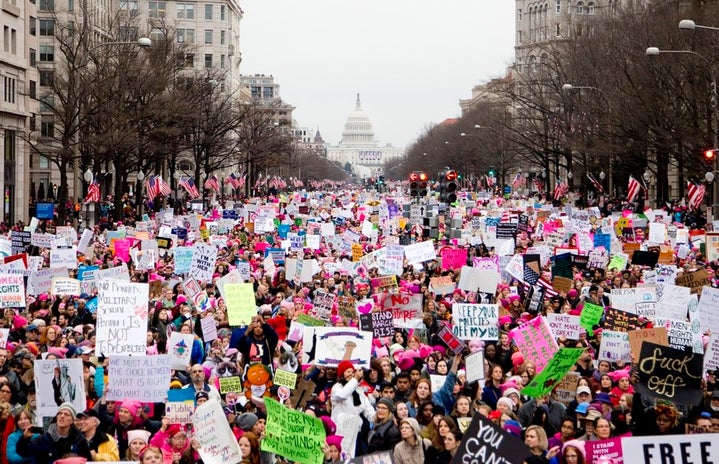The Young Girls of Iraq
Earlier this month, ultra-conservative Shia Muslim parties in the Iraqi Parliament proposed a new law that would drastically lower the age of consent to as young as nine. To put that in perspective, that’s about the age of year five students in British primary schools. Until now, Iraq’s legal age of consent was set at eighteen, aligning with global standards of protecting young people. For comparison, it’s sixteen in the UK.
This proposal is more than a legal technicality—it’s a rollback of fundamental human rights. If passed, it would overturn Iraq’s “personal status law,” legislation that has long safeguarded women’s rights regarding marriage, divorce, child custody, and inheritance. Essentially, it strips away decades of progress and puts young girls at risk. The international community quickly took notice. Just days after the announcement, the UN Committee on the Rights of the Child condemned the move, emphasizing that such changes blatantly violate basic human rights principles.
This isn’t just a political issue; it’s a humanitarian crisis in the making. Girls this young are simply not equipped to make life-altering decisions, and being forced into marriage at such an age is nothing short of institutionalized abuse. It’s a stark reminder of how quickly the hard-won rights of women and girls can be dismantled.
Afghanistan and Jihadi Law
The situation in Iraq is far from unique. Look no further than Afghanistan, where the Taliban’s resurgence has led to a devastating erosion of women’s freedoms. When the Taliban regained control in 2021, they initially promised a more moderate rule. Yet, it didn’t take long for their true intentions to surface. Almost overnight, women were barred from secondary education and banned from most workplaces. Universities are off-limits to female students, and those who dare to protest face brutal crackdowns.
Under the Taliban’s interpretation of Sharia law, the concept of “jihadi law” imposes severe restrictions on women’s behavior, movement, and dress. What’s particularly heart-wrenching is that many Afghan women remember a time—not so long ago—when they had careers, attended university, and participated in public life. Now, they are essentially prisoners in their own homes, forced into invisibility.
Afghanistan’s plight highlights a broader pattern: when extremist ideologies gain ground, women’s rights are often the first casualty. It’s a chilling reminder that progress is fragile, and regression can happen alarmingly fast.
Trump’s Future America?
It’s tempting to think of these issues as distant problems, confined to war-torn regions or countries with deep-rooted conservative traditions. But the reality is that women’s rights are under threat even in places where they once seemed secure. Take the United States, for example. Under the Trump administration, there was a noticeable shift in rhetoric and policy that many saw as a direct attack on women’s rights.
The most glaring example? The overturning of Roe v. Wade. While this happened post-Trump, his administration set the stage by appointing conservative Supreme Court justices who made it possible. Suddenly, American women found themselves living in a country where access to abortion—something many had taken for granted—was no longer guaranteed.
Looking ahead, the 2024 election looms large. If Trump, or someone with similar policies, were to return to power, the rollback of women’s rights could accelerate. Issues like reproductive rights, access to healthcare, and protection from workplace discrimination could all come under renewed attack. It’s a sobering reminder that progress isn’t linear. Even in democracies, rights can be rolled back.
Why Is This Happening? Will It Continue?
So, why now? Why are we witnessing this global decline in women’s rights? There are no simple answers, but several factors are at play. Economic instability, political extremism, and cultural backlash all contribute to an environment where women’s rights become vulnerable. In many cases, authoritarian leaders use the suppression of women as a way to consolidate power, appealing to conservative factions to strengthen their support.
But it’s not all doom and gloom. History has shown us that women are resilient. Across the world, women are organizing, protesting, and demanding their rights. In Iraq, brave activists are speaking out against the proposed law. In Afghanistan, underground schools are defying the Taliban. In the US, women’s marches continue to draw millions.
But there’s a glimmer of hope. History shows that progress is rarely linear, and setbacks often ignite stronger movements. In Iraq, activists are courageously pushing back against oppressive laws. In Afghanistan, underground schools and secret networks continue to empower women, defying the Taliban’s restrictions. In the United States, mass demonstrations signal that many are unwilling to accept a rollback of their hard-won freedoms.
The global erosion of women’s rights is a wake-up call. It reminds us that these freedoms are not permanent fixtures—they require constant vigilance and active defense. The true question isn’t just whether we can stop this decline, but how much we’re willing to fight for the rights of half the world’s population.


